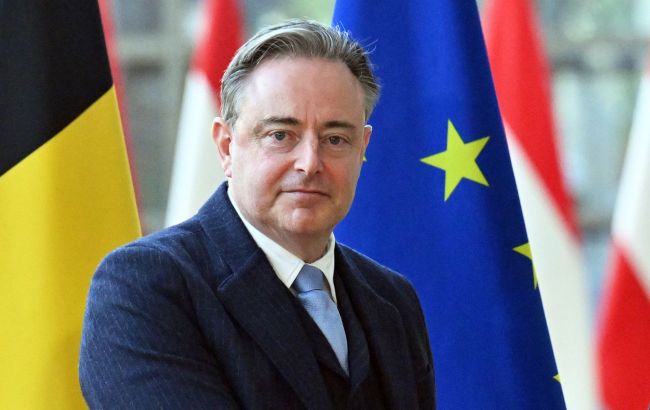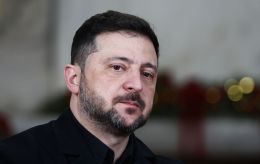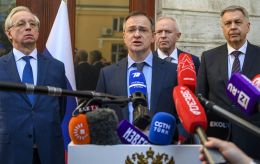Belgian Prime Minister opposes confiscation of frozen Russian assets
 Photo: Belgian Prime Minister Bart De Wever (Getty Images)
Photo: Belgian Prime Minister Bart De Wever (Getty Images)
Belgian Prime Minister Bart De Wever spoke out against the confiscation of frozen Russian assets, most of which are held in the Belgian Euroclear depository, Sky News reports.
According to the Prime Minister, Russian assets are best left frozen in the Belgian Euroclear bank until the peace negotiations between Russia and Ukraine are concluded.
"A whole lot of these funds are immobilised in Brussels at Euroclear. I know that there are governments that are trying to seize the money. But I would like to warn that this is not so easy legally," De Wever said.
As is known, Euroclear holds €183 billion out of the €300 billion of Russian assets frozen in Europe.
Confiscation of Russian assets
After Russia’s full-scale invasion of Ukraine, the European Union, G7 countries, and Australia froze about €3,300 billion of Russia’s state assets.
In May 2024, the EU approved the use of revenue from frozen assets to aid Ukraine. Last year, Kyiv received €3 billion.
Since the beginning of 2025, the European Union has transferred €10.1 billion to Ukraine from the income generated by Russian funds frozen in European banks.
At the same time, Ukraine has long insisted on the confiscation of Russian assets as compensation for the damage caused by the full-scale invasion. However, not all EU countries support such a decision.
As early as March, Deutsche Welle reported that the European Union would not confiscate frozen Russian assets due to opposition from several countries.
In Europe, the main opponents of confiscating Russian assets are Belgium, France, Germany, and Italy. Opposing them are Poland, the Baltic and Scandinavian countries, as well as several Central European states. They believe the assets should be confiscated and fully transferred to Ukraine.

